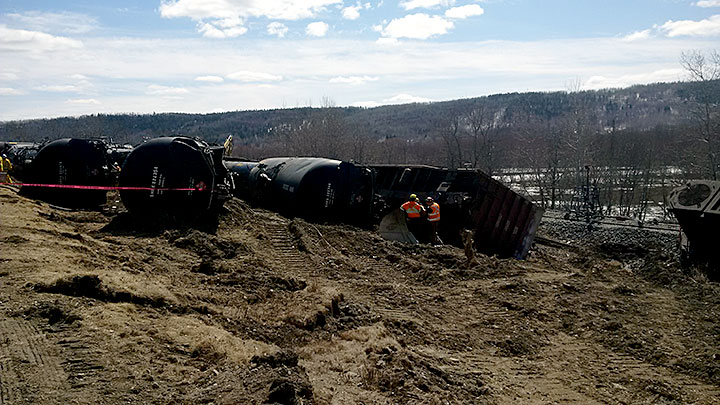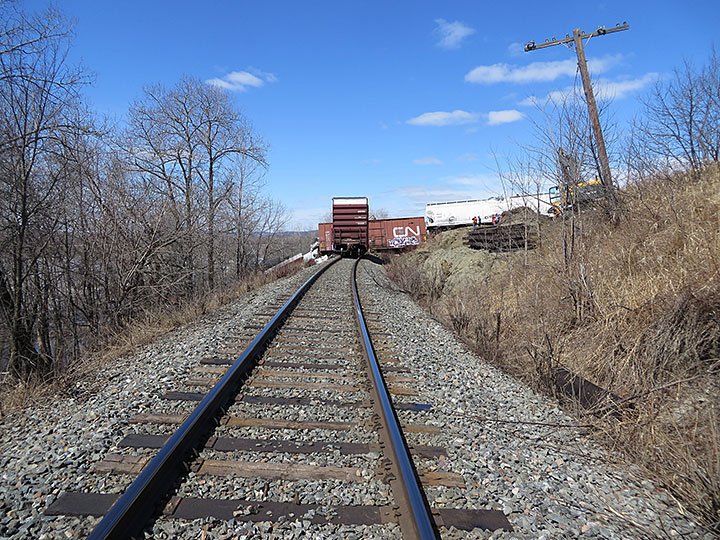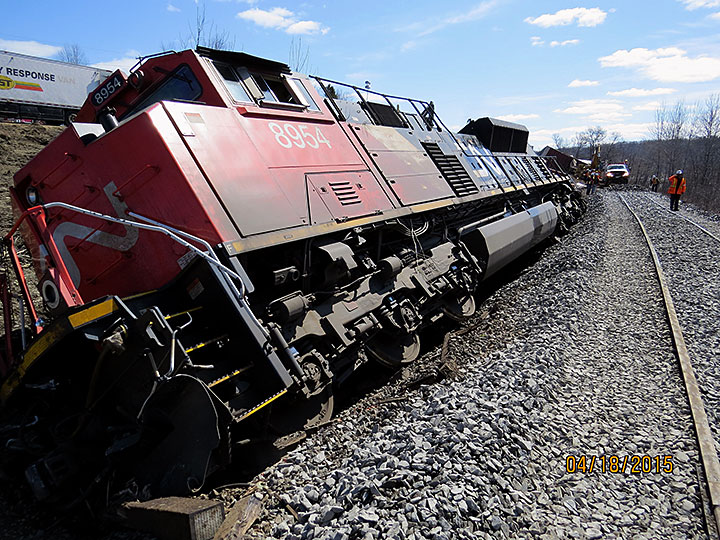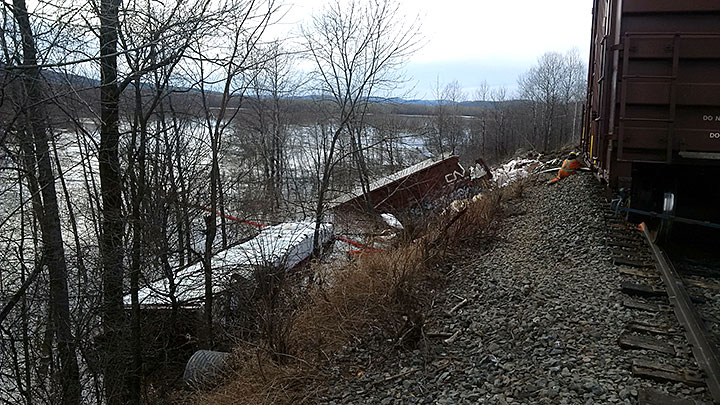Main-track derailment
Canadian National Railway
Freight train M30511-17
Mile 212.8, Napadogan Subdivision
Saint-Basile, New Brunswick
The occurrence
On , at approximately 1450 Atlantic Daylight Time, westbound Canadian National Railway freight train M30511-17, travelling at 46 mph, derailed 35 rail cars and 1 distributed power locomotive at Mile 212.8 on the Napadogan Subdivision, near Saint-Basile, New Brunswick. The derailment destroyed approximately 900 feet of main track. Twenty of the derailed rail cars were residue tank cars that had last contained crude oil (UN 1267, Class 3). There were no leaks and no injuries.
Media materials
News release
A combination of track conditions and rail wear contributed to April 2015 derailment near Saint-Basile, New Brunswick
Read the news release
Deployment notice
TSB deploys team to CN train derailment in Saint-Basile near Edmundston, New Brunswick
The Transportation Safety Board of Canada (TSB) is deploying a team of investigators to a derailment involving a Canadian National (CN) train in Saint-Basile near Edmundston, New Brunswick. The TSB will gather information and assess the occurrence.
Download high-resolution photos from the TSB Flickr page.
Class of investigation
This is a class 3 investigation. These investigations analyze a small number of safety issues, and may result in recommendations. Class 3 investigations are generally completed within 450 days. For more information, see the Policy on Occurrence Classification.
TSB investigation process
There are 3 phases to a TSB investigation
- Field phase: a team of investigators examines the occurrence site and wreckage, interviews witnesses and collects pertinent information.
- Examination and analysis phase: the TSB reviews pertinent records, tests components of the wreckage in the lab, determines the sequence of events and identifies safety deficiencies. When safety deficiencies are suspected or confirmed, the TSB advises the appropriate authority without waiting until publication of the final report.
- Report phase: a confidential draft report is approved by the Board and sent to persons and corporations who are directly concerned by the report. They then have the opportunity to dispute or correct information they believe to be incorrect. The Board considers all representations before approving the final report, which is subsequently released to the public.
For more information, see our Investigation process page.
The TSB is an independent agency that investigates air, marine, pipeline, and rail transportation occurrences. Its sole aim is the advancement of transportation safety. It is not the function of the Board to assign fault or determine civil or criminal liability.



